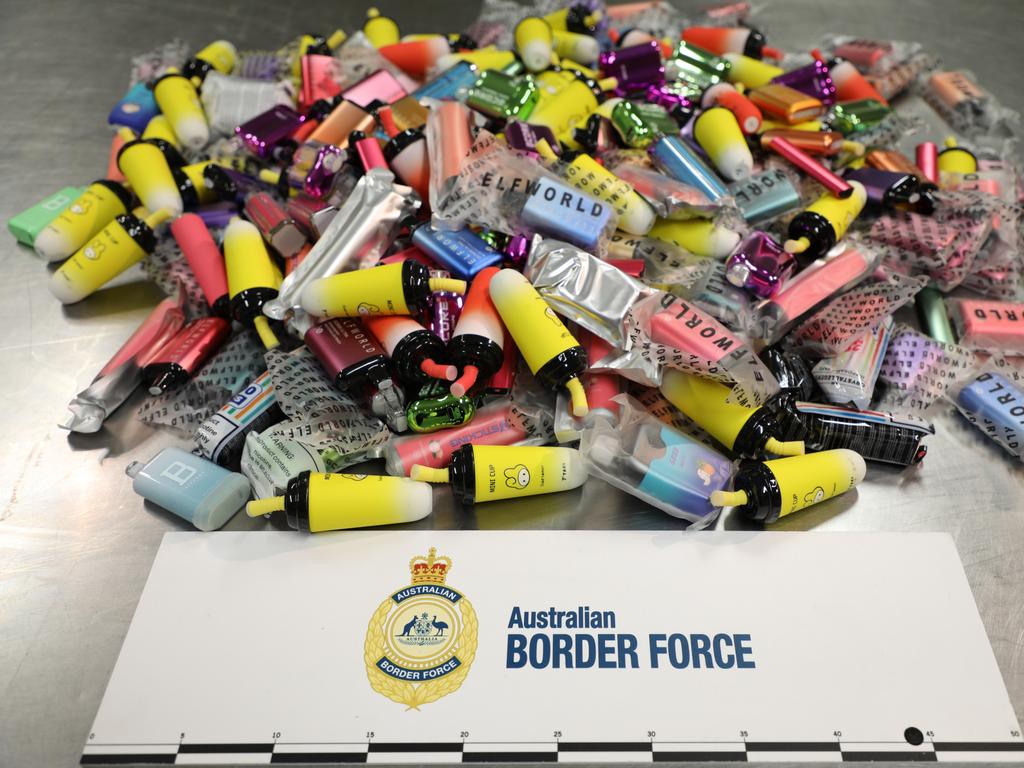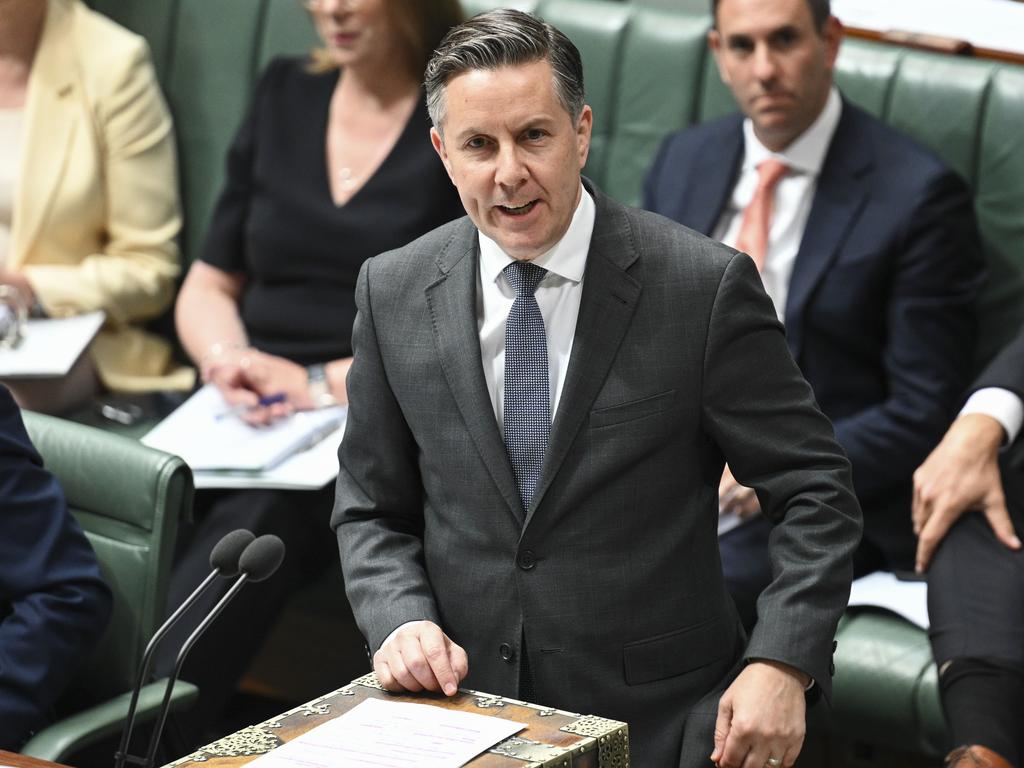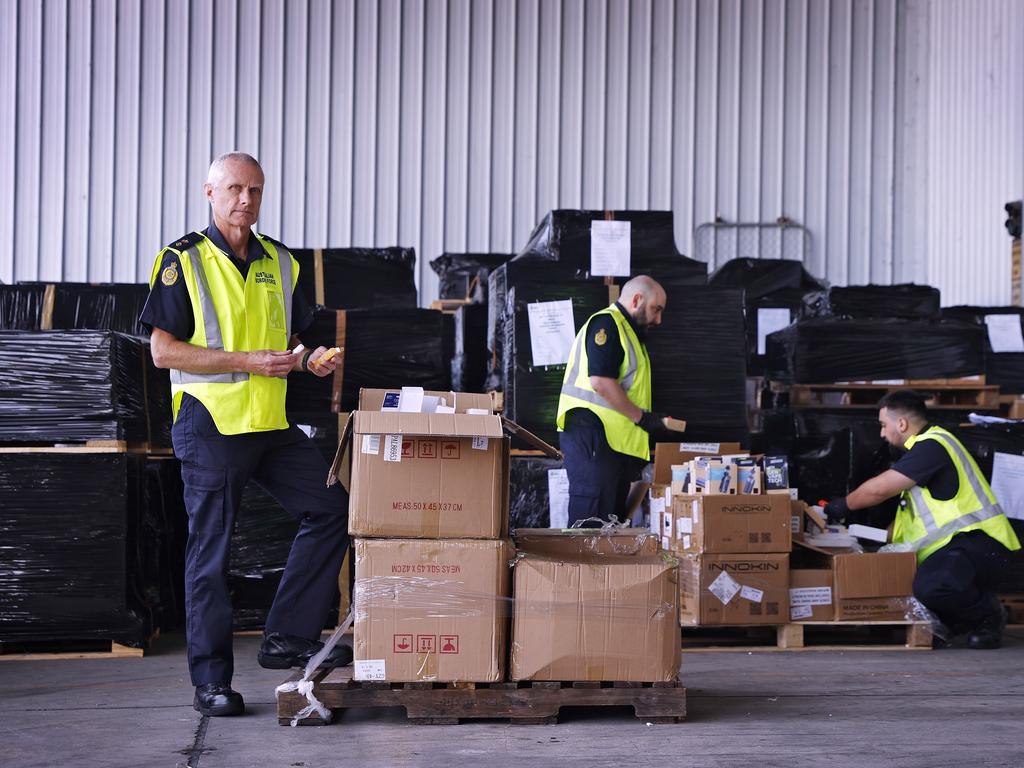Dirty tactics big tobacco is using to hook you on vaping
At least three global producers have spelled out their blueprint to get millions of Australians into vaping. See the lengths they are prepared to go.
Special Investigation: Big tobacco has brazenly laid bare its plans to get millions of Australians hooked on vaping.
Desperate to prop up declining smoking profits, at least three global producers have spelled out their blueprints for addiction in company marketing and reports - and the lengths they are prepared to go to.
Our investigation found the businesses are sanitising their political campaigning by funding “charities” and confusingly-named lobby groups to influence decision makers.
And they are making hefty donations to Australia’s major parties, hiring former powerful and connected political apparatchiks to push their message.

Despite a Federal Government ban on the import of disposable vapes from January 1 and authorities stopping 1.5 million vapes at the border, the products are still freely available.
It is estimated millions of disposable vapes were imported ahead of the ban.
“We will work to Build a Smokeless World. The way we will do this is by switching as many smokers as we can to our smokeless products,” British American Tobacco, makers of Camel and other cigarette brands, boasted in its annual report.
In its annual report, major producer Philip Morris International hypes its “smoke-free transformation”.
“We are confident in our strong position as the global smoke-free champion and our ability to lead the industry’s transformation. Our smoke-free portfolio now includes the world’s leading heat-notburn brand, IQOS, and the world’s leading nicotine pouch franchise, ZYN.”
Altria has a similar line for shareholders in 2023, saying it “remained focused on … (creating) a compelling long-term smoke-free portfolio”.
Its competitor Imperial Brands also has a long-term vapes vision.
“Our commitment to forging a path for healthier moments of pleasure and relaxation is reflected in the rapid progress we are making in the heated tobacco category,” Imperial posted on its website.

Even Health Minister Mark Butler concedes “big tobacco are targeting their products to young Australians on social media because they want to get a new generation hooked on nicotine”.
We found examples of big tobacco companies:
* using a key retail lobby group to push their cause.
* funding research that promotes vaping as a solution to tobacco addiction when vaping nicotine is also addictive.
* sponsoring academic conferences
They have even falsely claimed the Australian Medical Association President Professor Steve Robson is on board with vaping, when he is a strong opponent.
Tobacco companies British American Tobacco and Philip Morris have donated at least $519,299 to the Liberal and National parties since 2009.
Legalise Vaping provided $44,000 to the NSW Liberal Party in 2021.
While the Labor and Liberal Parties no longer accept donations from tobacco companies, Philip Morris donated $75,000 to the Nationals in 2023.
As underage vaping rates skyrocket, senators have delayed voting on the new vaping bans that would slap jail terms and fines of $2.2 million on suppliers while they hold an inquiry.
Pro vaping academics and lobby groups who claim the harms of vaping are exaggerated will tell the inquiry that vaping is better for human health than smoking.
While the inquiry drags on, vapes are still being sold and packaged in a way that appeals to children.

Philip Morris said its vaping products were sold through pharmacies in Australia.
“We have long called for stricter regulatory standards for vaping products, and are pleased this is finally happening. As a legal, taxed and regulated business we will always comply with Australian laws and call on others to do the same,” the spokesman said.
“The real issue is the dozens of companies supplying illegal products,” the spokesman said.
University of Sydney public health expert Associate Professor Becky Freeman said the tobacco and vaping industry were experts at hiding their involvement in lobbying.
“You’re led to believe this is some sort of independent body but when really it’s a commercial enterprise (often funded by big tobacco) that has a lot to benefit by overturning Australia’s vaping laws,” she said.
“The money’s being filtered from a foundation to an organisation down to an agency. They are going to these elaborate lengths to hide where their source of funds is really coming from.
“The tobacco industry simply can’t be trusted by the public. They’re not exactly known for they’re sort of paragons of truth telling.”
More Coverage
Originally published as Dirty tactics big tobacco is using to hook you on vaping




